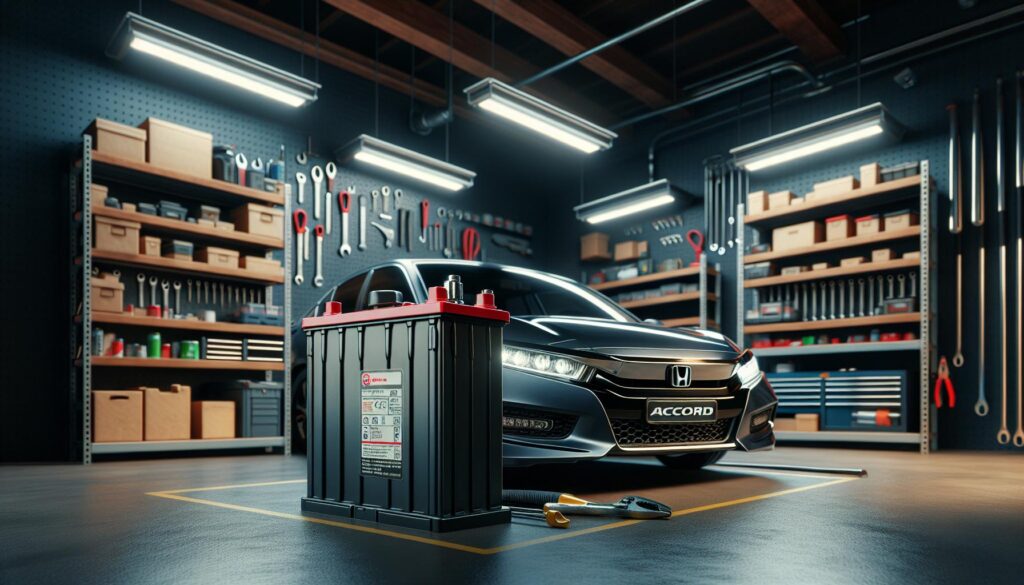When it comes to reliability, the Honda Accord stands out, but how long does its battery really last? Understanding the lifespan of a car battery is crucial for any Accord owner. A well-maintained battery not only ensures smooth starts but also enhances the overall performance of the vehicle.
Typically, a Honda Accord battery can last anywhere from three to five years, depending on various factors like driving habits and climate conditions. Regular maintenance and timely checks can significantly extend its life. In this article, we’ll explore the factors that influence battery longevity, signs of a failing battery, and tips for maximizing its lifespan.
How Long does a Honda Accord Battery Last
Honda Accord batteries play a crucial role in vehicle operation. Understanding the types and specifications helps owners make informed decisions regarding maintenance and replacements.
Types of Batteries Used
Honda Accords primarily use two types of batteries: lead-acid batteries and absorbed glass mat (AGM) batteries.
- Lead-Acid Batteries: Commonly used in standard models, these batteries are cost-effective and reliable. They typically consist of a liquid electrolyte, providing adequate starting power.
- AGM Batteries: Found in newer or higher-end models, AGM batteries offer improved performance, longer lifespan, and better resistance to vibration. These batteries also support advanced electrical systems.
Battery Specifications
Honda Accord battery specifications often vary by model year and type, including size, capacity, and cold cranking amps (CCA).
| Model Year | Battery Size | Capacity (Ah) | CCA |
|---|---|---|---|
| 2013-2017 | Group 51R | 45-60 | 400-500 |
| 2018-2023 | Group 51R | 60-70 | 500-600 |
Understanding these specifications ensures compatibility during replacement, promoting better performance and reliability.
Factors Affecting Battery Lifespan

Batteries in Honda Accords face various influences that determine their longevity. Understanding these factors helps owners maximize their battery’s lifespan.
Driving Habits
Driving habits significantly impact battery life. Frequent short trips lead to incomplete charging cycles, preventing optimal battery recovery. Additionally, aggressive driving patterns, including rapid acceleration and high-speed braking, increase strain on the battery. Regularly utilizing features like headlights, air conditioning, and infotainment systems also drains battery power, affecting overall lifespan.
Climate Conditions
Climate conditions play a crucial role in battery performance. Extreme temperatures can cause wear and tear, with high heat increasing fluid evaporation and cold weather reducing battery capacity. In regions with large temperature fluctuations, batteries face additional stress, leading to reduced efficiency and longevity. Proper insulation and storage can mitigate these effects.
Maintenance Practices
Effective maintenance practices extend battery life. Regular visual inspections, including checking for corrosion on terminals and ensuring tight connections, maintain optimal performance. Keeping the battery clean and free from debris also prevents premature wear. Additionally, periodic testing of the battery’s charge and voltage levels helps identify potential issues early, facilitating timely interventions.
Typical Battery Lifespan of Honda Accord
A Honda Accord battery typically lasts between three to five years, depending on various factors. Proper maintenance plays a key role in maximizing this lifespan.
General Lifespan Expectations
Batteries in Honda Accords vary in lifespan based on model and type. Lead-acid batteries usually last about three years, while absorbed glass mat (AGM) batteries can exceed five years. Factors such as driving habits, climate, and usage patterns significantly impact these expectations. For example, regular long drives often promote longer battery life, whereas frequent short trips can lead to premature deterioration.
Signs of Battery Wear
Identifying battery wear early can prevent unexpected failures. Common signs include:
- Dimming headlights: This indicates reduced power.
- Slow engine cranking: Difficulty starting the engine suggests a weakening battery.
- Warning lights: Dashboard indicators may signal battery issues.
- Corrosion: Visible rust around battery terminals can hinder performance.
Regular checks for these signs can enhance vehicle reliability and ensure timely replacement.
How to Extend Battery Life
Extending the life of a Honda Accord battery involves consistent maintenance and good practices. Following specific tips can maximize battery performance and longevity.
Regular Maintenance Tips
- Inspect battery terminals regularly for corrosion. Clean terminals with a mixture of baking soda and water if necessary.
- Perform visual inspections for signs of wear, such as cracks or leaks. Address any issues immediately.
- Check the battery’s water level for maintenance-free batteries. Keeping water levels between the markers supports optimal operation.
- Ensure the battery is properly secured to prevent vibrations that can damage internal components.
- Test the battery’s charge regularly using a multimeter or voltmeter. A reading below 12.4 volts indicates a need for charging.
- Schedule comprehensive battery check-ups during routine vehicle maintenance. This allows professionals to identify potential problems early.
- Replace the battery every three to five years, depending on the type and usage. Monitor performance for signs of decline before the typical lifespan ends.
- Use batteries that meet factory specifications for optimal compatibility and performance, particularly with size and cold cranking amps (CCA).
- Dispose of old batteries at designated recycling centers, adhering to local regulations for environmental safety.
- Consider professional installation for new batteries. Proper handling and mounting can prevent future issues.
Maintaining a Honda Accord’s battery is crucial for ensuring reliable performance. By understanding its lifespan and the factors that influence it, owners can make informed decisions about maintenance and replacement. Regular inspections and proper care can significantly extend battery life, helping to avoid unexpected failures.
Recognizing the signs of a failing battery allows for timely action, ensuring the vehicle remains dependable. With the right practices in place, drivers can enjoy the longevity and efficiency that Honda Accord batteries are designed to provide.
